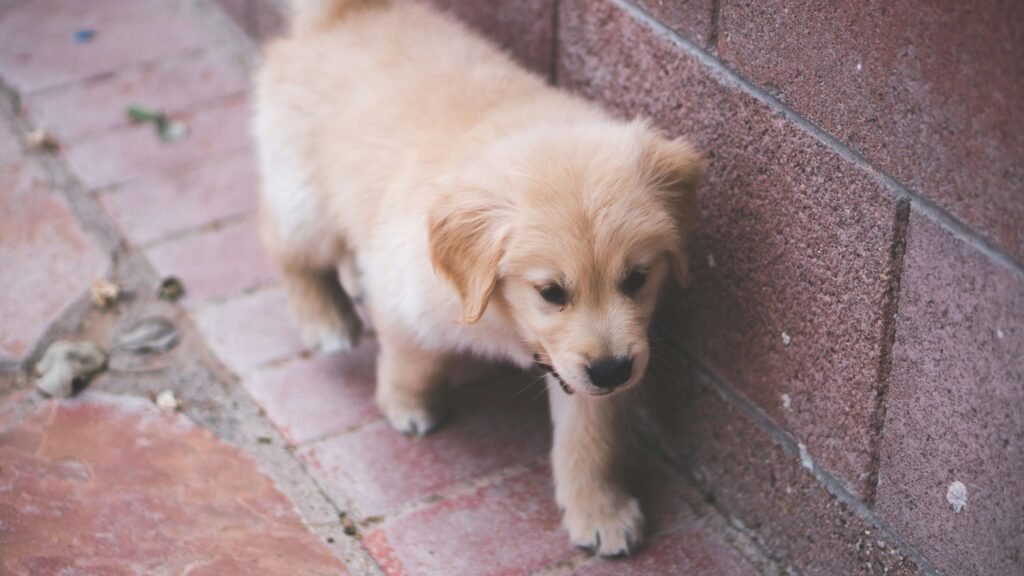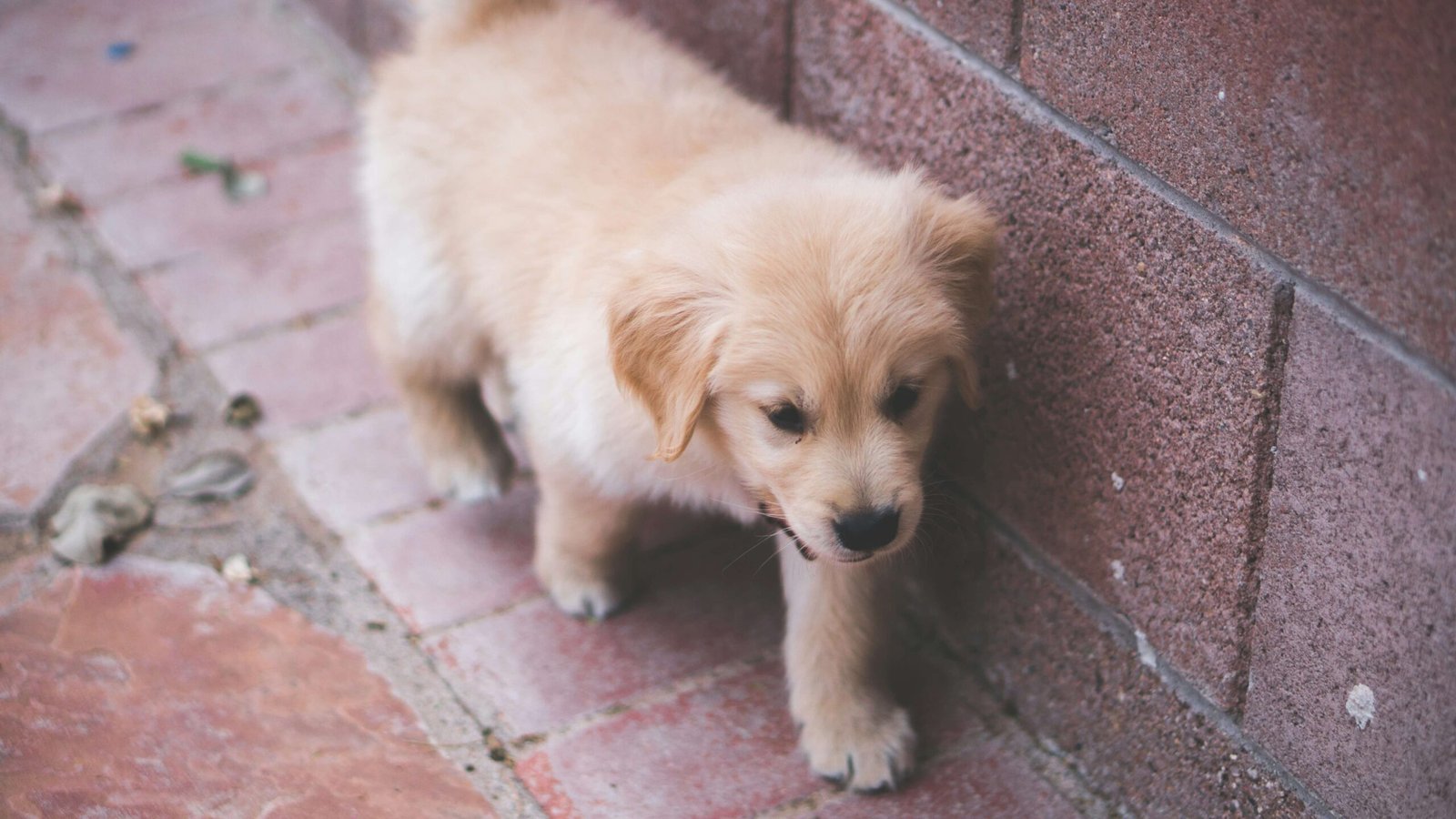Why Does My Dog Lick Me Excessively at Night?
Dogs are known for their quirky behaviors, and one of the most common yet perplexing habits is excessive licking. If your furry friend turns into a nighttime licker, you might be wondering why this behavior occurs and whether it’s something to be concerned about. While licking is a natural form of communication and affection for dogs, understanding the reasons behind this behavior can help strengthen your bond and ensure your pet’s well-being. In this blog post, we’ll explore the various factors that could explain why your dog licks you excessively at night and provide practical insights to address it.
Common Reasons Why Dogs Lick Their Owners
Dogs lick for a variety of reasons, and understanding these motivations can shed light on their nighttime behavior. Here are some of the most common explanations:
Affection and Bonding
Licking is a way for dogs to show love and strengthen their connection with their human companions. It’s a behavior rooted in their puppyhood when their mothers licked them to nurture and care for them.Seeking Attention
If your dog feels neglected or wants to engage with you, licking can be their way of grabbing your attention. This is especially true if they’ve learned that licking gets a reaction from you.Anxiety or Stress Relief
Dogs often resort to licking as a self-soothing mechanism when they’re feeling anxious or stressed. Nighttime can heighten feelings of insecurity, leading to increased licking behavior.Taste and Smell
Your skin may have traces of salt, sweat, or food particles that intrigue your dog’s senses. Their keen sense of smell and taste can make your skin an irresistible target for licking.Health Issues
Sometimes, excessive licking can indicate underlying health problems such as allergies, nutritional deficiencies, or even pain. If the behavior seems sudden or unusual, it’s worth consulting a vet.
Understanding these reasons can help you identify whether your dog’s licking is simply a sign of affection or something more complex.
Signs That Your Dog’s Licking Might Be a Problem
While occasional licking is normal, there are signs that indicate your dog’s behavior might need addressing. Here’s what to look out for:
Persistent Licking Despite Distractions
If your dog continues to lick even when you try to redirect their attention, it could signal an obsessive behavior.Skin Irritation or Sores
Excessive licking can lead to redness, irritation, or open sores on your skin, which may require medical attention.Changes in Behavior
If your dog suddenly starts licking more frequently or aggressively, it could point to stress, anxiety, or discomfort.Disruption of Sleep Patterns
Nighttime licking that interferes with your rest or your dog’s sleep routine can negatively impact both of your well-being.Accompanying Symptoms
Look for other signs like lethargy, loss of appetite, or excessive grooming, which could indicate an underlying health issue.
If you notice any of these signs, it’s important to take action to address the root cause of the behavior.
Check this guide 👉Why Does My Dog Lick My Face When I Lay Down? Best 7 Tips!
Check this guide 👉Why Does My Dog Lick the Air When I Pet Him? Best 7 Tips!
Check this guide 👉Why Does My Dog Lick My Hands When I Pet Her? Best 7 Tips!

Possible Causes of Excessive Licking | Ways to Address the Behavior |
|---|---|
Affection and bonding | Spend quality time with your dog during the day to fulfill their emotional needs. |
Anxiety or stress | Create a calming bedtime routine with soothing music or a cozy environment. |
Seeking attention | Reward alternative behaviors like sitting or staying calm instead of licking. |
Taste and smell | Wash your hands and face before bed to remove any enticing scents. |
Health issues | Schedule a vet visit to rule out allergies, infections, or nutritional deficiencies. |
How to Manage Excessive Licking at Night
If your dog’s nighttime licking is becoming a nuisance, here are some practical steps you can take to manage the behavior:
Establish a Routine
Create a consistent daily schedule that includes playtime, walks, and feeding to reduce anxiety and boredom.Provide Mental Stimulation
Engage your dog with puzzle toys or interactive games during the day to tire them out mentally and physically.Set Boundaries
Teach your dog commands like “no lick” or “stop” to establish clear boundaries around acceptable behavior.Use Positive Reinforcement
Reward your dog with treats or praise when they refrain from licking, reinforcing the desired behavior.Create a Comfortable Sleeping Environment
Ensure your dog has a cozy bed and familiar items like blankets or toys to make them feel secure at night.
By implementing these strategies, you can help curb your dog’s excessive licking while fostering a peaceful nighttime atmosphere.
Tips to Strengthen Your Bond Without Encouraging Licking
Building a strong relationship with your dog doesn’t have to involve reinforcing licking behavior. Here are some tips to connect with your pet in healthier ways:
Engage in Playtime
Spend time playing fetch, tug-of-war, or other activities that your dog enjoys to deepen your bond.Practice Training Sessions
Teaching new tricks or commands not only strengthens your connection but also keeps your dog mentally sharp.Go on Adventures
Take your dog on hikes, trips to the park, or explore new environments together to create positive shared experiences.Offer Grooming Sessions
Brushing your dog’s fur or giving them a gentle massage can be a relaxing way to bond without encouraging licking.Communicate Through Body Language
Learn to read your dog’s cues and respond appropriately to build trust and mutual understanding.
These activities will help you nurture a loving relationship with your dog while minimizing unwanted behaviors.
Additional Triggers for Nighttime Licking
While many factors contribute to your dog’s nighttime licking, some triggers are less obvious but equally important to consider. These often stem from environmental or situational changes that affect your dog’s behavior. Here are a few possibilities:
Changes in Routine
Dogs thrive on consistency, and any disruption to their daily schedule can lead to stress-related behaviors like excessive licking.New Family Members or Pets
The introduction of a new baby, partner, or pet can make your dog feel insecure, prompting them to seek reassurance through licking.Weather Changes
Extreme temperatures or storms can heighten anxiety in dogs, causing them to engage in self-soothing behaviors such as licking.
Understanding these triggers can help you identify external factors that may be influencing your dog’s nighttime habits.
How Diet Can Influence Licking Behavior
Your dog’s diet plays a crucial role in their overall health and behavior, including their tendency to lick excessively. Certain dietary factors can either exacerbate or alleviate this habit. Consider the following points:
Food Allergies or Sensitivities
Ingredients like wheat, soy, or artificial additives can cause itching or discomfort, leading to increased licking.Nutritional Deficiencies
A lack of essential nutrients such as omega-3 fatty acids or vitamins may manifest in unusual behaviors, including excessive licking.High-Sodium Foods
If your dog consumes foods with high salt content, they may lick your skin more often due to its salty taste.
By evaluating and adjusting your dog’s diet, you can potentially reduce their urge to lick excessively.
Training Techniques to Redirect Licking
Training is an effective way to manage your dog’s licking behavior while reinforcing positive habits. With patience and consistency, you can teach your dog alternative ways to express affection or seek attention. Here are some techniques to try:
Teach the “Leave It” Command
This command helps your dog understand when it’s inappropriate to lick, giving you greater control over the behavior.Reward Calm Behavior
When your dog refrains from licking and remains calm, reward them with treats, praise, or playtime to reinforce the desired behavior.Introduce a Chew Toy Distraction
Providing a chew toy before bedtime can redirect your dog’s focus and satisfy their need to mouth or lick objects.
With consistent training, your dog can learn healthier ways to interact with you, ensuring peaceful nights for both of you.
Frequently Asked Questions About Excessive Dog Licking
Is it normal for my dog to lick me at night?
Yes, it’s normal for dogs to lick their owners as a form of affection or communication. However, excessive licking may indicate an underlying issue.
Can licking be a sign of separation anxiety?
Absolutely. Dogs with separation anxiety often lick excessively as a way to cope with stress or loneliness.
Should I punish my dog for licking?
No, punishment can increase anxiety and worsen the behavior. Instead, use positive reinforcement to encourage alternative behaviors.
Could my dog’s diet affect their licking habits?
Yes, nutritional deficiencies or food sensitivities can sometimes trigger excessive licking. Consult your vet for dietary advice.
When should I consult a veterinarian?
If the licking is sudden, persistent, or accompanied by other symptoms like lethargy or skin issues, it’s best to seek professional advice.
Wrapping Up: Understanding Your Dog’s Nighttime Licking
Excessive licking at night can be puzzling, but it’s often a sign of your dog’s desire to connect, seek comfort, or express affection. By observing their behavior and addressing any underlying causes, you can create a harmonious environment that benefits both you and your furry companion. Remember, patience and consistency are key when managing this behavior. With the right approach, you can enjoy peaceful nights and a stronger bond with your beloved pet.
Do Cats Have Taste Buds? Best 7 Expert Tips! – Discover how cats experience flavors and why their taste is so unique.
Do Dogs Have Taste Buds? Best 7 Expert Tips! – Discover how dogs experience taste, their preferences, and what it means for their diet and health.
Can Cats Taste Sweet? Best 7 Expert Tips! – Discover why cats can’t taste sweetness, how it affects their diet, and tips to keep them healthy and happy.
Can Dogs Taste Sweet? Best 7 Expert Tips! – Discover how dogs perceive sweetness, which foods are safe, and tips to manage their sweet cravings responsibly.





